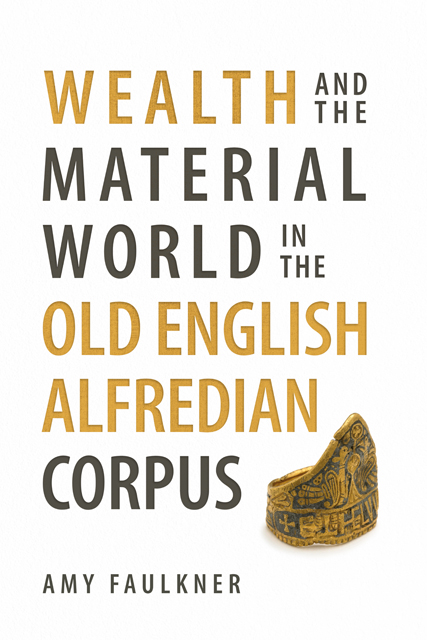Book contents
- Frontmatter
- Dedication
- Contents
- Illustrations
- Acknowledgements
- Abbreviations
- Introduction
- l Books and Ladders: The Speaking Prefaces
- 2 The Stream of Wealth: The Old English Pastoral Care
- 3 True Riches: The Old English Boethius
- 4 The Familiar and the Strange: The Old English Soliloquies
- 5 Treasure in Heaven: The Prose Psalms
- Conclusion: Transformations in Prose and Poetry
- Bibliography
- Index
- ANGLO-SAXON STUDIES
3 - True Riches: The Old English Boethius
Published online by Cambridge University Press: 14 June 2023
- Frontmatter
- Dedication
- Contents
- Illustrations
- Acknowledgements
- Abbreviations
- Introduction
- l Books and Ladders: The Speaking Prefaces
- 2 The Stream of Wealth: The Old English Pastoral Care
- 3 True Riches: The Old English Boethius
- 4 The Familiar and the Strange: The Old English Soliloquies
- 5 Treasure in Heaven: The Prose Psalms
- Conclusion: Transformations in Prose and Poetry
- Bibliography
- Index
- ANGLO-SAXON STUDIES
Summary
The Old English translation of Boethius's De consolatione philosophiae, like the Old English Pastoral Care, features a preface which attributes the work of the translation – and subsequent versification in the prosimetrical version – to King Alfred. As we shall see, the two Old English translations share many of the same concerns and preoccupations. However, they are fundamentally very different works: while the Pastoral Care offers practical guidance for people in positions of authority, the Boethius is ultimately a philosophical text, detached from the practicalities of everyday life.
Following De consolatione, the Old English Boethius presents wealth as deceptive, false and fleeting. Indeed, much of the material world is seen in this light, as Philosophia's message to Boethius's fictional persona is that true happiness can only be found through severing one's attachment to earthly things. Nonetheless, as discussed at the very start of this book, the Old English translation is famous for the speech in a king's voice which defends the need for material resources in order to govern a kingdom and exercise one's cræft. Over the course of this chapter, I will argue that as the dialogue between Mod and Wisdom progresses, the Old English Boethius nuances this apparent binary between useful tool and excessive indulgence. The translator seems to quite firmly condemn material wealth – and yet closely associates wela (‘wealth’) with wisdom; ‘soð wela’ (‘true riches’) are at once worldly and transcendent. This chapter will explore the use of wealth imagery throughout the translation, and will offer a fresh reading of the Boethius as a transformative text: in the sense of Mod's own transformation, the transformation that is expected of the reader, and the transformation of ‘true riches’.
Boethius's De consolatione
Boethius's Latin text takes the form of a dialogue, in which Philosophia appears to ‘Boethius’, a fictionalised persona of the author, in his prison cell. She leads him to the understanding that worldly goods are only deceptive and fleeting images of the good which all men seek. The falsity of these goods, such as wealth, is one of the central concerns of the first half of the dialogue. The dialogue begins with ‘Boethius’s’ lament for the injustice of his suffering and the deprivation of all his wealth and status.
- Type
- Chapter
- Information
- Publisher: Boydell & BrewerPrint publication year: 2023



